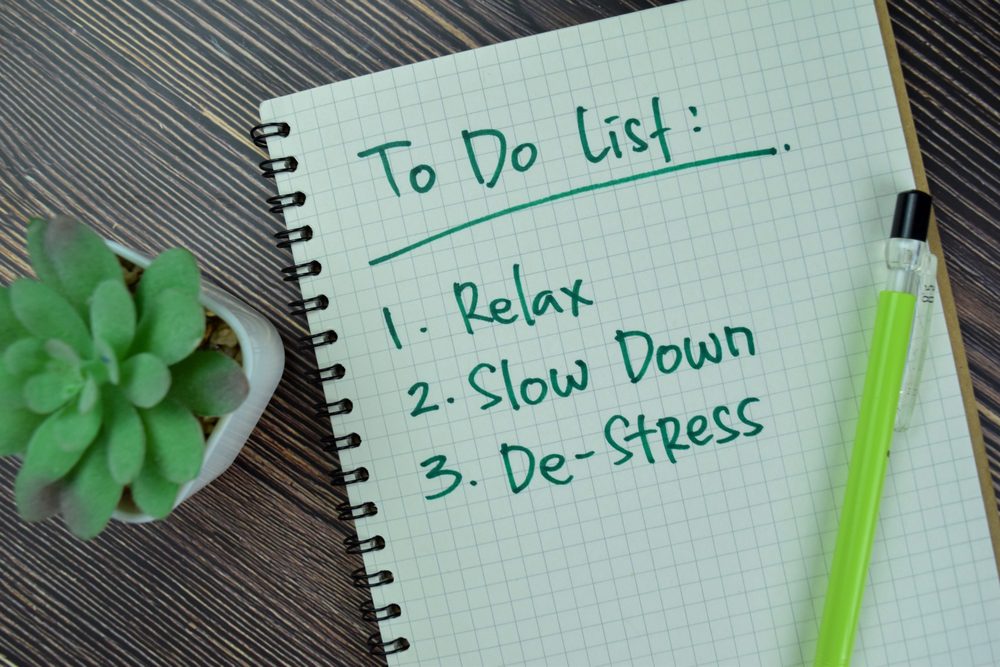These are the best ways to cope with holiday anxiety throughout the season:
The jolly season is knocking at the door, and soon many people will have the house full. Anticipating the holiday get-togethers, celebrations, and activities might get you excited, particularly if your family doesn’t reside in the same town or state as you.
But along with all of this enthusiasm, having a large family may also cause a great deal of anxiety for some people. A mental health condition like anxiety might make you feel even more depressed, irritated, and under pressure at this time.
If you want to avoid turning the most wonderful time of the year into a stressful period, see the best ways to cope with holiday anxiety through Thanksgiving, Christmas, Hanukkah, Kwanzaa, and New Year’s Eve.

1. Prevent burnout by saying simply “no”
Setting boundaries with other people, including your own family, may be difficult, especially if you are more like a people-pleaser and you want to see everybody happy. But in the long run, this is how you can cope with holiday anxiety.
You’ll need to figure out how much socializing, family time, social commitments, and relaxation time are enough for you. Recall that you have the right to refuse requests that you don’t wish to fulfill. Setting boundaries helps you devote attention to your needs first and at a pace that suits you.
Try using I-statements in your communication and expression when you’re attempting to establish boundaries and cope with holiday anxiety. Psychologists advise this method because it helps you better express yourself and helps you find the center of your feelings and emotions.
2. Be mindful of triggers
In most cases, the potential scenarios we create in our heads are the best fuel for anxiety. However, according to psychologists, these imaginary scenarios about potential triggers can help us figure out how to respond in case something bad happens. Try to rehearse how to handle these circumstances with composure and the healthy coping mechanisms you acquired in treatment sessions. Act out how you believe things will go.
Playing through scenarios might make you feel less surprised if and when they happen. This can assist you in maintaining your calm, coping with holiday anxiety, and avoiding tense situations that might happen.
3. Take a break if the situation becomes tense
One of the best ways to cope with holiday anxiety is to take a break if you need it, whenever you need it. Most of the time, people start arguing at Thanksgiving or Christmas dinner, and because things escalate quickly, if you have anxiety, you will quickly feel overwhelmed. If you see things are going bad, stop for a bit, and before continuing on the same path, take a break.
Removing oneself from the issue is not a sign of weakness. Get up and move outdoors or out of the room until everyone has calmed down. Don’t forget that, after all, your mental health is the most important. Even more important than the holiday itself!
4. Get a bit of fresh air
If you’ve been dealing with anxiety issues for a long time, then you already know that sometimes it can become unbearable. You feel numb and hopeless. Besides taking a break from everything, you can also get out for some fresh air.
This is just another simple way to cope with holiday anxiety and lift your mood. A daylight stroll outside may be a useful tool for centering and relaxing. Try to do this in the early morning or before lunchtime, especially during the winter months when it’s getting dark sooner than usual.
5. Don’t forget about sleeping
In this holiday rush and social gatherings, don’t forget one small detail that could make a huge difference: your sleeping time. Make sure you get enough rest throughout the holidays since it’s not mandatory to work nonstop all day long.
If you’re also lucky to have some time off from work, take advantage of sleeping. Sleep is also a coping mechanism for anxiety and helps improve our mental health as well as the way we process emotions.
6. Meditation can be helpful too
Another way to cope with holiday anxiety is through meditation and mindfulness. For those who aren’t familiar with the terms, practicing mindfulness can help us be more attentive to the present moment.
Give your senses some thought first. What senses do you have? Taste, smell, touch, and hear. Good. Now take a random object from your room in your hand and think about how it feels in your hand. It may sound a bit silly, but this technique is going to help you feel more grounded and connected to the present moment, especially when anxiety kicks in and you don’t know what to do or how to react.
…psst! If the idea of meditation has been on your mind for a while now but you don’t know if it’s going to be helpful or not, we hope reading these lines clears up things for you. And just in case you need a bit of a boost to do it, check out this Boho floor cushion, perfect for your meditation moments when you need to be comfortable with yourself and the environment. Furthermore, it comes with a substantial price tag of $20.79.
7. Keep things simple
Holiday dinners and family gatherings are usually the biggest source of stress for people who have anxiety. But who said that only because it’s Christmas or Thanksgiving do you have to cook a ton of different dishes? Put aside all the extravagant meals and keep it as simple as possible.
Organize a potluck rather than preparing the entire dinner by yourself. Purchase gift cards as presents for every person on your Christmas list. If you feel overwhelmed and tired, this is one of the best ways to cope with holiday anxiety: have a mindset that tells you that you aren’t required to perform all tasks.
8. Plan everything
For a person who worries a lot by nature, having to do a lot of things in a short period might be very stressful. To avoid this and cope with holiday anxiety, plan everything one month or two before the celebrations.
Write down everything you have to do, from gift shopping to grocery shopping, family gatherings, and so on. If you are worried you will end up broke at the end of December, write down the money you are willing to spend for these holidays to make sure you won’t overspend.
If you’re worried about some family members you don’t get along with, see if you can avoid those meetings or if any of your friends can come with you for emotional support. You’ll feel less stressed and overwhelmed the longer you have to get ready for upcoming activities.

9. Ask for support from a friend or a close family member
Another way to cope with holiday anxiety is by asking for help when you need it. Remember, there is no shame in that! This individual can assist you by actively assisting you in avoiding circumstances that trigger you or by checking in with you regularly.
Ask the person you most trust for a helping hand over the phone if, for whatever reason, they are unable to be there in person. Just give them a call and chat with them whenever you’re feeling nervous, depressed, or angry. Text messages work well too, if phoning isn’t an option!
How are you dealing with anxiety during the holidays and most importantly how do you cope with holiday anxiety? Tell us in the comments.
If by any chance you’re still on the conflict field and you find yourself arguing for the holidays, you will need to unwind after that. Here are 8 tips for de-stressing after a conflict that everybody must know about!














